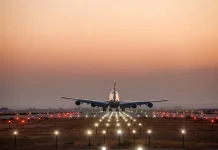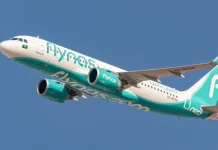The World Logistics Passport (WLP), announced at its second Annual WLP Global Summit it has almost doubled in size in its second year of operation – with its footprint now covering over 40 countries and nearly half (47%) of global trade – while WLP members including India, Vietnam and Kazakhstan, among others, are to adopt a new declaration to accelerate global trade.
The Summit hosted a mix of CEOs, government ministers and representatives of leading international trade bodies, agreed to a joint declaration on the future direction of global trade. Representatives included HH Sheikh Ahmed bin Saeed al Maktoum, Chairman and CEO of the Emirates Group, Tran Thanh Hai, Deputy Director General, Foreign Trade Agency of Viet Nam, Ministry of Industry and Trade of Viet Nam, and Kairat Torebayev, Vice-Minister of Trade and integration of the Republic of Kazakhstan.
Presented by H.E. Tatiana Clouthier, Secretary of Economy of Mexico, the declaration states that sustainable and inclusive global trade is fundamental to economic growth, resilience and multi-lateral cooperation, while also setting the ambition of the WLP to cover 75% of global nominal GDP by 2025.
The World Logistics Passport (WLP) is a global, private sector-led, initiative designed to smooth the flow of global trade, unlock market access through the creation of new trade routes and provides economic efficiencies to members. With 14 members across Asia Pacific, the WLP is present in key economies including India, China, Indonesia, Viet Nam, Singapore, Malaysia, Philippines, Thailand, Australia and Kazakhstan.
An integral part of the WLP’s implementation has been physically visiting its Partners and Members network In May 2022, the WLP conducted a roadshow to Viet Nam, meeting the country’s most important logistics stakeholders across Ho Chi Minh and Hanoi, graciously hosted by Viet Nam’s Ministry of Industry and Trade.
At the Summit, the 2022 Global Freight Resilience Index, developed by Whiteshield, showed that freight resilience has increased across developing regions, including the Middle East, Africa, Latin America, and the Asia Pacific. The Index comprises two sub-pillars: Policy Opportunity and Freight Performance. Vietnam was called out specifically for notable increases in freight resiliency amid continued pressure on global supply chains.
In the past year, the WLP’s mandate has also grown to become a trade facilitator. Today, the WLP strengthens cooperation by supporting customs authorities with efficient and secure trade. Furthermore, the WLP is unlocking and enhancing trade routes across its unique network of partners and members, increasing the trade of high value commodities such as coffee, precious metals and consumer electronics.
Mahmood Al Bastaki, General Manager, World Logistics Passport, said:
“In last year’s inaugural WLP Global Summit, Sultan Ahmed bin Sulayem announced that the WLP network had grown to cover 23 countries. I am now pleased to announce that our network has almost doubled, with the WLP now covering 43 countries, accounting for 47% of global trade. Moreover, our network now consists of 121 WLP partners with more than 240 confirmed benefits, both cost and efficiency-related, offered to about 1000 businesses opted-in the program globally.”




























